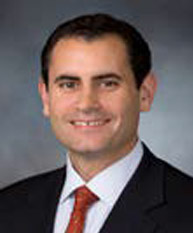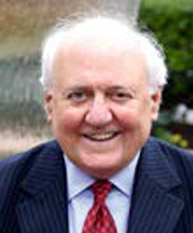Schedule of Events: Thursday, Nov. 2, 2017
Registration and Continental Breakfast
Ethical Bounds Of Representing Husband And Wife In Estate Planning And Business Planning: The Ins And Outs Of Not Being On The Outs.

Harrison & Held, LLP. Chicago, IL
The topic will discuss the evolution of estate planning and drafting for husband and wife since ATRA in 2013. There will be a focus on the practicality of certain drafting conventions,with focus on portability, discussions involving the transfers of assets, second marriages, and the ethical bounds of representing husband and wife. There will also be a discussion of the further concerns when husband and wife are equity holders in the same company, and the additional ethical obligations owed to business owners.
Refreshment Break
Principal, Income, and Fiduciary Tax:When is a Uniform Act No Longer Uniform?

Charles Schwab Bank. Chicago, IL
Principal and income are at the heart of traditional trust law. Fiduciaries have long been tasked with accurately determining fiduciary accounting income,to ensure that the equitable balance of a trust is maintained. More recently, under Sub chapter J of the Internal Revenue Code, fiduciary accounting income has become a key element in allocating the burdens of trust income tax. With a new Uniform Fiduciary Income and Principal Act on the horizon,however, will old habits die hard? Mr. Bergman will address the issues being debated as part of the Uniform Act revision, and how possible changes will impact fiduciary income tax planning.
Partnership Audits - The New Frontier

KPMG LLP. Washington, D.C.
For tax years beginning in 2018, partnerships will face a new and untested audit regime that,for the first time, will make partnerships primarily liable for a broad category of audit adjustments.This session will examine the construct of the new rules, provide up-to-date insights on the status of relevant guidance from the IRS and Treasury,and discuss what partnerships and partners should be doing to prepare for the new world of partnership audits.
Luncheon (included in registration fee)
Retirement Accounts in First and Second Marriages: The Fun Begins

University of Missouri-Kansas City School of Law. Kansas City, MO
Married individuals have different legal rights in the other spouse’s retirement assets, depending on whether the assets are held in an employer plan(such as a 401(k) plan) or in an IRA. This session will address the best planning strategies for married individuals, including the traps and the solutions for individuals in second marriages, where each spouse has children from a prior marriage.
2017 International Tax Update

Reinhart Boerner. Van Deuren s.c. Milwaukee, WI
The international tax world continues to accelerate with new regulations, groundbreaking Tax Court cases, and, of course, the looming specter of significant tax reform in Washington. This program will focus on new structuring possibilities for U.S. clients doing business abroad and foreign clients operating in the United States. We will also consider potential new tax planning techniques that may result from the proposals (or, possibly, legislation) from Washington.
Refreshment Break
Individual Tax Update

Horace Mann. Educators Corporation. Springfield, IL
Randy will review recent legislative, administrative, judicial, and academic developments in individual tax. His presentation will cover topics for taxpayers at all income and wealth levels, including qualified charitable distributions, education planning, and retirement distributions.
Adjourn and Networking Reception
Schedule of Events: Friday, Nov. 3, 2017
Registration and Continental Breakfast
Current Planning Opportunities with C and S Corporations

Reynolds, Hix & Co. Albuquerque, NM
The past 10 years have seen a dramatic decrease in C corporation tax filings and continued growth in S corporation tax filings. Tax reform discussions focused on business tax relief cannot ignore the shift in business organization in pass through entities. This session discusses how tax planning for C and S corporations has changed in the past decade and how it may change in the future. Topics include the 100% Section 1202 exclusion and its effect on choice of entity, does the S corporation or the LLC “win” the payroll tax issue, how are disregarded entities changing the planning landscape, and how will possible reform proposals, including a lower “business” tax rate impact future planning with corporations.
State and Local Tax Update Panel

RRevenue City of Kansas Commissioner of Revenue City, MO

Division Director, Taxation, Missouri Department of Revenue Jefferson City, MO

Tax Specialist, Kansas Department of Revenue Topeka, KS
This panel will present an overview of the current tax updates in the States of Kansas and Missouri and the City of Kansas City, Missouri and the new 2017 Earnings and Profits Tax Regulations.
Refreshment Break
Resolving IRS Disputes with an Ever Changing IRS Organization

TKPMG. Houston, TX
This presentation will discuss recent organizational changes within the Examination Division of the IRS as well as recent operational changes within the IRS Office of Appeals. The speaker will also summarize the various alternative dispute practices available within the IRS including “Fast Track”, “Rapid Appeals or “RAP”, pre-filing agreements, regular Appeals, early referral to Appeals, requests for Technical Advice, informal request for counsel assistance, Post Appeals Mediation, and Offers in Compromise and some of the pros and cons inherent in each one. Finally, the presentation will
include a discussion of strategic considerations
involved in choosing when and how to resolve an
issue raised by the IRS.
Luncheon (included in fee)
The Federal Reserve and the U.S. Economy

Assistant VP and Economist, Federal Reserve Bank. Kansas City, MO
This presentation will present how the Policies of the Federal Reserve Bank affects the Economy and the consequences of changes in global tax policy.
Deferred Compensation: Key Tax and SEC Regulatory Rules

Loyola Law School. Los Angeles, CA
A large portion of the rise in executive pay over the last two decades has come in the form of deferred compensation. Stock options, annuities, and life insurance policies, in addition to more traditional nonqualified deferred compensation plans, are all common means of compensating highly paid executives. This program will discuss the numerous tax and SEC regulatory rules that reach deferred compensation arrangements and often discourage their use, including I.R.C. sections 409A, and 280G, and the “say for pay” and “performance based compensation rules.”
Refreshment Break
Current Developments in Nonprofit Tax Law

Bruce R. Hopkins Law Firm, LLC. Kansas City, MO
This will cover recent developments in the issuance of tax regulations, private letter rulings, court opinions, and proposed legislation concerning the federal tax law applicable to tax-exempt organizations, including qualification for tax exemption, the commerciality doctrine, private inurement and private benefit doctrines, political activities, public charities and private foundations, unrelated business activities, use of subsidiaries and joint ventures, charitable giving, and fundraising.
